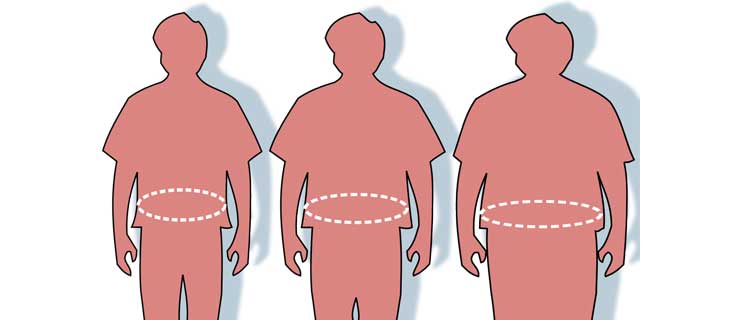Obesity and its Effects on Your Health
posted on: Saturday August 12, 2017
By the end of 2016, the Centers for Disease Control (CDC) reported that Florida ranked 37th of 50 in obesity prevalence, with 26.8 percent of the state being categorized as obese. While the annual study is based on self-reported data, it always finds that approximately 1 in every 5 people across the country are obese. Obesity is one of the most pervasive, chronic diseases in need of new strategies for treatment and prevention today. It is a leading cause of death, disability, healthcare utilization and healthcare costs.
Obesity is defined as excess fat tissue. The Body Mass Index equation serves as a common indicator for judging obesity. Based on the equation [Weight (lbs) ÷ height (in)² ] x 704.5 = BMI , BMI cutoffs are as follows:
- Below 18.5 Underweight
- 18.5-24.9 Normal weight
- 24.5-29.9 Overweight
- 30 and greater Obese
- 40 and greater Morbid or extreme obesity
People with severe obesity have higher chances of contracting other diseases, which include the following:
Diabetes
Obesity is a major cause of type 2 diabetes. Those who are affected by obesity are 10 times more likely to have type 2 diabetes, which can nearly double the risk of death. Type 2 diabetes can result in amputations, heart disease, stroke, blindness, kidney disease and other circulatory diseases.
Hypertension
Approximately 3 out of every 4 hypertension cases, abnormally high blood pressure, are resultant of obesity. Further, hypertension can lead to coronary heart disease, congestive heart failure, stroke and kidney disease.
Heart Disease
Heart disease kills approximately 600,000 people in the U.S. each year. Large studies show that the risk for heart disease increases when an individual is obese. Those with severe obesity face a greater risk of coronary artery disease, meaning they are more likely to suffer a heart attack.
Respiratory Disorders
Excessive weight leads to reduced lung capacity. Obese individuals are more likely to suffer from respiratory infections, and more likely to have asthma (by 300% to 400%) and other respiratory disorders. Further, more than 50% of obese individuals have obstructive sleep apnea, a condition that occurs when excess fat in the neck, throat and tongue block airways during sleep.
Cancer
Obesity is believed to cause up to 90,000 cancer deaths annually. As an individual’s BMI rises above the obesity indicator, their risk of cancer and death from cancer increases as well. Cancers associated with obesity include, among others: endometrial, cervical, ovarian, colorectal, esophageal, liver, prostate, Non-Hodgkin’s lymphoma and Leukemia.
The list of ailments that result from obesity goes on, and continues to grow as more research is done on its full effects on the body.
The best prevention and deterrent for obesity and its resultant health effects is diet and exercise. A healthy lifestyle serves as a strong preventative to obesity, which is often (but not always) caused by factors such as overeating, poor diet and lack of physical activity.
If you are searching for a way to prevent sickness and disease caused by obesity, American Family Medical of Ocala, in Central Florida, offers a wellness program that is focused on education and implementation. The TLS Weight Management System teaches individuals about low glycemic impact eating and how to create new behaviors that will help speed up metabolism.
Find out more about the TLS system, and discover how it can maintain or create a healthy lifestyle for you!
